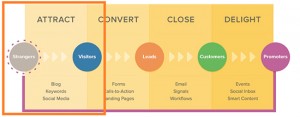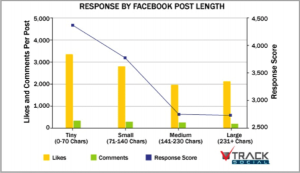
Running a business is fraught with challenges. Over the years you’ve probably experimented with various marketing strategies and innovative sales approaches to grow revenue.
You’ve likely picked up on the buzz around digital marketing and social media marketing. Wondering which approach is going to help you push the needle on your growth aspirations?
In reality the difference between digital marketing and social media is simple: social media is part of digital marketing.
Digital marketing is widely considered to include things like your website, paid search, online ads, email marketing and SEO, while Social Media Marketing may seem to be a standalone strategy, it is in fact a powerful part of your digital marketing arsenal.
Social Media
One of the biggest challenges you may be tackling is understanding the value of social media in the context of your business. After all this is the same tool that seems to consume vast amounts of time from the people around you.
How can social media possibly add value to your business?
- Social media produces almost double the marketing leads of trade shows, telemarketing, direct mail, or PPC. (Source: HubSpot)
- 59% of Twitter users have visited B2B tech brand sites, compared to 40% for the average internet population. (Source: Compete and Twitter)
It’s a tool that, when used correctly, creates, amplifies and reinforces your brand awareness, increasing word of mouth through valuable and genuine conversations. Basically, we can refer to social media as one of the most effective ways to get your message to your target audience, to see what they are talking about and to start engaging in dialogues with your fan base.
Digital Marketing
For years you’ve been using various marketing strategies to drive lead generation, to bring new opportunities into your sales & marketing funnel and convert them into paying customers.
What’s the difference between marketing and digital marketing? None.
In a few years digital marketing will likely just be referred to as marketing. A great digital marketing strategy will drive leads into your funnel, using online tools and cost a hell of a lot less than traditional marketing tools.
How do the two compliment one another?
Social media is one of the most powerful tools you have for distributing content and getting it in front of your target audience. You can use social media to drive visits to your website landing pages, grow a following that will amplify your content and drive visitors to your blog posts.
Once you’ve attracted visitors to your site, other digital marketing tools are activated. A visitor submits a form on a landing page, which automatically adds them to a specific list. Your digital marketing strategy may incorporate email automation, sending more useful information to the prospective customer.
Content should be matched to every step of the buyer journey – from awareness about industry challenges, to consideration of possible solutions and service providers, to purchasing the right solution and becoming a promoter of your business. By creating valuable content that reaches your prospects and educates them, you’re attracting qualified leads to your website.
- Relevant content + Social media = Site traffic
What you need to do is track your digital marketing goals through social media marketing. No matter if you’re in the B2C or B2B field, we’ve got you covered with some tips that illustrate what are the specific social media tools that can help you reach your business aims:
1. Visitors
Almost all of the social media activity is focused on attracting visitors, either it’s through organic reach or paid advertising. You can track this specific goal by looking at statistics on:
- Engagement (Likes, Follows, Clicks);
- Reach;
- Impressions (the times when your content is being seen on pages different from yours).
2. Leads
This is definitely one of the must-haves in the B2B area. You can gain new prospects from social media by using the features for Calls-To-Action:
- Insert newsletter sign-ups on Facebook, to bring people to you and share your content with them;
- Create offers directly from Facebook, to keep them interested and increase engagement.
3. Customers
E-commerce companies are really benefiting from the following social media marketing tools created especially for them, maybe you should also consider giving them a go:
- The BUY button on Twitter;
- LinkedIn’s Social Selling;
- Facebook’s BUY button.
Having all these resources at your fingertips, it makes it a lot easier to reach your business goals by integrating Social Media into your Digital Marketing strategy.
The features of the social platforms practically “sell” you the ultimate buyer journey, beginning with clicking a Like button, and ending up on your website, right where you want them to be. This proves that there is no versus in the whole social media-digital marketing affair. They go hand in hand, for it’s a long term relationship.
It’s important to remember that after you’ve implemented your strategy, you need to stay constant and keep your customers coming back to your page, by always providing them with the content they enjoy and being there to help with any other details. Delight your clients and try to make them happy in order to get referrals and increase word of mouth for your brand.
Was this article helpful? Let us know in the comment section, no matter if it means you have a different opinion or if you’d like to find out more!
(195)







